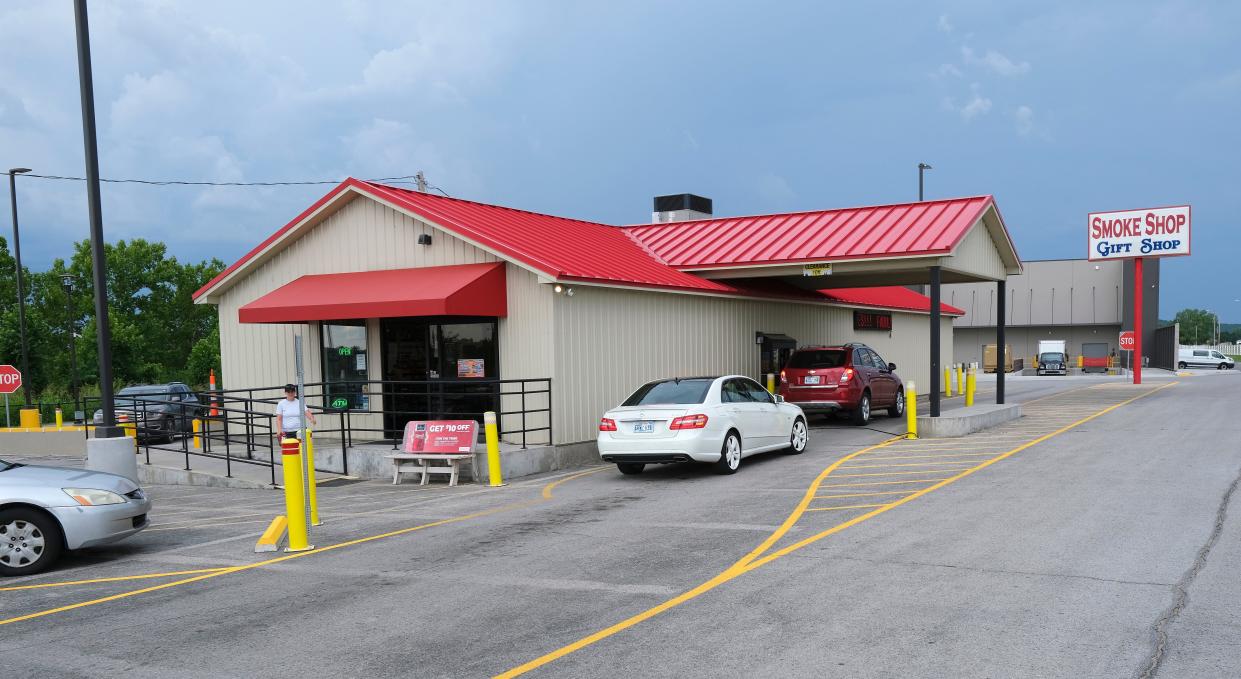State, tribal agreements to go under the microscope at Oklahoma hearing

- Oops!Something went wrong.Please try again later.
Lawmakers have blocked out two days to study Oklahoma’s compacts with tribal nations — and to consider who can sign the agreements on behalf of the state.
The House hearings, which begin Tuesday, are poised to become the latest stage in the power struggle between the Legislature and the governor over working with tribal governments.
Compacts are supposed to be a way for the state and tribal officials to work out overlapping interests. But lawmakers have grown increasingly frustrated with Gov. Kevin Stitt’s failure to compromise with tribal leaders and have said they might consider limiting the governor’s power to represent the state in future negotiations.
Stitt’s surprise announcement Thursday that he would support non-tribal gaming in the state — in the form of online sports betting — has further complicated his tenuous relationships with many tribes. The plan also could violate the current state-tribal gaming compact. Under that deal, tribal nations pay the state millions of dollars in fees every month in exchange for exclusive gaming rights.
Tribal leaders, lawmakers say they were not looped in on sports betting proposal
The Oklahoma Indian Gaming Association, which represents most tribal gaming operations in the state, said Stitt did not consult with its members before announcing his sports betting proposal and “has not engaged in meaningful and respectful government-to-government discussion with tribes.”
House Speaker Charles McCall and Senate President Pro Tem Greg Treat also confirmed they weren’t looped in before the governor floated his idea on how he wants to legalize sports betting in the state.
The lack of communication mirrors past complaints about Stitt’s handling of state-tribal tobacco tax compacts, which were all on track to expire in December. The Legislature voted in July to renew them for one year. Under the agreements, Oklahoma and tribal governments split the tax money collected from tobacco products sold on tribal lands.
More: What to know about Oklahoma's newest tribal compact dispute
McCall and Treat have said they hoped Stitt and tribal leaders could use the next year to negotiate more permanent deals. But three letters between the governor and two dozen tribal leaders show they remain at an impasse.
In the governor’s most recent letter, sent Oct. 11, he reiterated the stance he has maintained since May. He has insisted on narrowing the compact terms to make clear they do not apply to entire tribal reservations recognized since the McGirt v. Oklahoma ruling.
He said his legal team was prepared to draft 10-year agreements should tribal leaders agree.
“We’ll continue to make every reasonable effort to formalize a deal in a fair and fully transparent manner,” Stitt wrote in the letter.
Abegail Cave, a spokesperson for the governor, said a few tribal leaders have expressed interest in the offer, but did not provide specific details.
More: Oklahoma extended some tribal compacts for 1 more year. But will relations improve?
Meanwhile, six tribes have so far signed on to the extensions approved by the Legislature, which renew the deals for one year as-is. The largest of those tribes, the Chickasaw Nation, sent its notice to the state Oct. 27.
In a statement, Bill Anoatubby, the governor of the Chickasaw Nation, said the compact benefits both the state and the tribes.
“It is important for us to continue our collaborative relationship and honor our intergovernmental agreements with the state as we work together to serve the interests of both Chickasaw citizens and our neighbors across Oklahoma,” Anoatubby said.
The extensions are set to take effect Jan. 1, pending the outcome of Stitt’s lawsuit attempting to block the renewals. The Oklahoma Supreme Court has agreed to hear oral arguments in the case next month.
Tensions between tribes, Gov. Kevin Stitt at an all-time high
The tobacco tax compacts are likely to be a focal point of the House hearings, which McCall set up months ago as one of his chamber's interim studies, when lawmakers meet to discuss pressing topics ahead of the legislative session. No official votes are taken at these meetings, but they allow thorough discussion of significant issues. A detailed agenda of hearings, which are scheduled to last through Wednesday, has not yet been released. Cave confirmed someone from the governor's office would attend, but could not say whether Stitt himself planned to do so.
Tensions between Stitt and tribal leaders are so palpable that four of his predecessors recently called on the state to work more closely with tribes.
But Stitt’s idea to open up Oklahoma’s gaming market to operators that would compete with tribes signals that the ties are not going to be mended any time soon. He suggested tribal casinos should be allowed to offer in-person sports betting in exchange for paying the state 15% of proceeds, while mobile operators licensed by the state pay 20%.
More: Governor announces a plan for sports betting in Oklahoma, but many hurdles lie ahead
Sen. Bill Coleman, a Ponca City Republican who has tried to rally support in the Legislature to legalize sports betting, questioned whether Stitt had consulted with tribal leaders at all.
“When dealing with the tribes, compacting and the many nuances with exclusivity and future gaming negotiations, it’s imperative that Governor Stitt work in good faith with our tribal partners,” Coleman said. “I’m not sure he’ll garner much support given his plan, among other things, asks the tribes to give up their online share of sports gaming, which nationally accounts for 95% of total revenues.
In a statement, Gary Batton, the chief of the Choctaw Nation, called it unfortunate tribal officials were not consulted.
“Upon initial review, we do not believe the plan represents the best interests for the people of Oklahoma or the tribal nations that have done so much to support the state,” Batton said.
Molly Young covers Indigenous affairs. Reach her at mollyyoung@gannett.com or 405-347-3534.
This article originally appeared on Oklahoman: Oklahoma lawmakers will scrutinize state-tribal compacts

